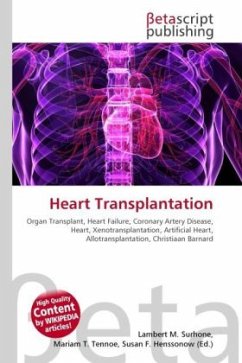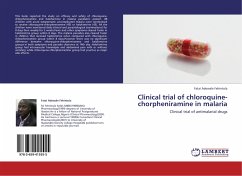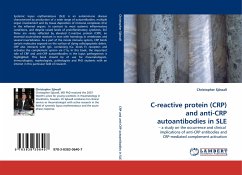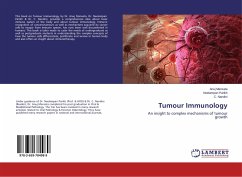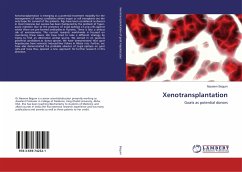
Xenotransplantation
Goats as potential donors
Versandkostenfrei!
Versandfertig in 6-10 Tagen
51,99 €
inkl. MwSt.

PAYBACK Punkte
26 °P sammeln!
Xenotransplantation is emerging as a potential treatment modality for the management of various conditions where organ or cell transplants are the only hope for survival of the patients. Pigs have been considered as donors in most instances but success has been hampered by the problem of hyper-acute rejection due to the presence of -gal epitope on pig cells against which there are pre-formed antibodies in humans. There is also a serious risk of xenozoonosis. The current research world-wide is focused on countering these issues. We have tried to take a different strategy by trying to find an al...
Xenotransplantation is emerging as a potential treatment modality for the management of various conditions where organ or cell transplants are the only hope for survival of the patients. Pigs have been considered as donors in most instances but success has been hampered by the problem of hyper-acute rejection due to the presence of -gal epitope on pig cells against which there are pre-formed antibodies in humans. There is also a serious risk of xenozoonosis. The current research world-wide is focused on countering these issues. We have tried to take a different strategy by trying to find an alternative animal source. We zeroed in on goats as potential candidates as donor species. We have demonstrated that goat hepatocytes have reversed, induced-liver failure in Wistar rats. Further, we have also demonstrated the probable absence of -gal epitope on goat cells and have thus, opened a new approach for further research in this direction.




